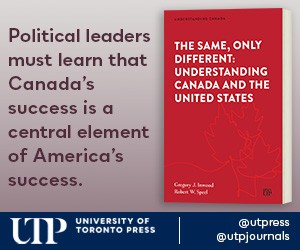Public institutions must lead in protecting copyright for Canadian creators, the Library of Parliament committee was told yesterday. “Traditional media are dying,” said Senator Michael Duffy (Independent-P.E.I.).
“I want to flag for you the fact that at a time when traditional media are dying for lack of revenues, there is a lawsuit against the Library of Parliament for the breach of copyright,” said Duffy. “I would urge you to make it a priority that the Library get its house in order as it relates to copyright.”
“We have people who generate copyright material who are dying or making a pittance because of abuse of copyright,” said Duffy. “I would urge the Library to be a leader in that field in observing copyright and protecting the works of our creative artists.”
Heather Lank, nominee for the $201,000-a year post as Parliamentary Librarian, replied: “Certainly, that’s an area where I will need to become more well-informed. Certainly I’ve made a note of the importance of that.”
The Library of Parliament is named in a federal copyright lawsuit by Blacklock’s after staff purchased a single $157 password and distributed works without payment or permission. Blacklock’s attorneys have attempted to bring the case to trial since filing the lawsuit in 2015.
“I think libraries are more important than ever because we are overwhelmed with information,” said Librarian Lank. “There is so much information out there that individuals – be they parliamentarians or Canadians – might have very easy access to information through Google and other mechanisms, but do you know that information is quality information that you can rely on?”
Eighty percent of the Library’s $48 million yearly budget is spent on salaries, by official estimate.
Canada Like North Korea?
Newspaper publishers in May 29 testimony at the Commons industry committee said free copying has damaged the industry. “Press freedom is not just a function of law,” said John Hinds, CEO of News Canada, a publishers’ trade group. “It depends on a market that can generate sufficient returns on the huge financial investments required to cover the large legal and commercial risk of the news business.”
News Canada estimates 16,500 journalism jobs have vanished in the past decade with the closure of dailies including the Barrie Examiner, Guelph Mercury, Halifax Daily News, Kamloops Daily News, Lindsay Daily Post, Moose Jaw Times-Herald, Nanaimo Daily News, Orillia Packet & Times and Prince Rupert Daily News.
MPs are currently conducting a statutory review of the Copyright Act, the first since 2012. Music executives yesterday urged the Commons industry committee to rewrite provisions that permit free use of creators’ material.
“The Copyright Act always has and always will be the keystone for the entire Canadian creative sector,” said Eric Baptiste, CEO of the Society of Composers, Authors and Music Publishers of Canada (SOCAN). “Copyright royalties have always represented an essential part of the livelihood of our creators. This is the case more than ever today.”
SOCAN said copyright protection should be extended from the current 50 to 70 years past a creator’s death, similar to regulations in the United States and European Union. Music publishers have described copyright fees on popular older titles as an essential revenue source to fund new artists. “Canada is one of the laggards at the international level,” said Baptiste; “Does Canada want to continue to be in the same category as countries like North Korea or Afghanistan?”
Gilles Daigle, general counsel for SOCAN, said extending copyright would benefit creators’ heirs and their publishers. “We’re essentially asking for the same treatment for our members who ask, ‘What is it about us Canadian creators?’” said Daigle. “Are we not as worthy?’”
By Staff 







